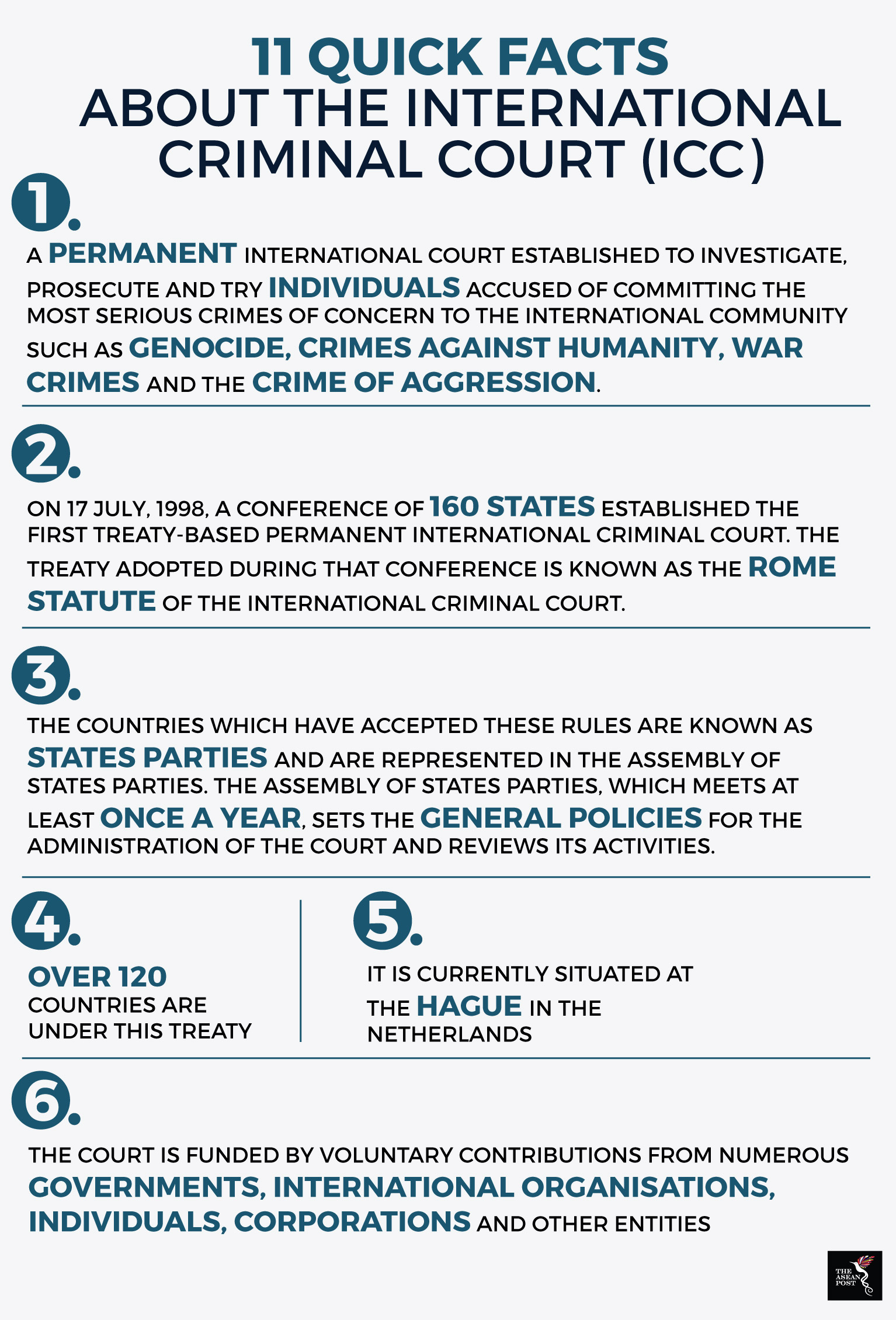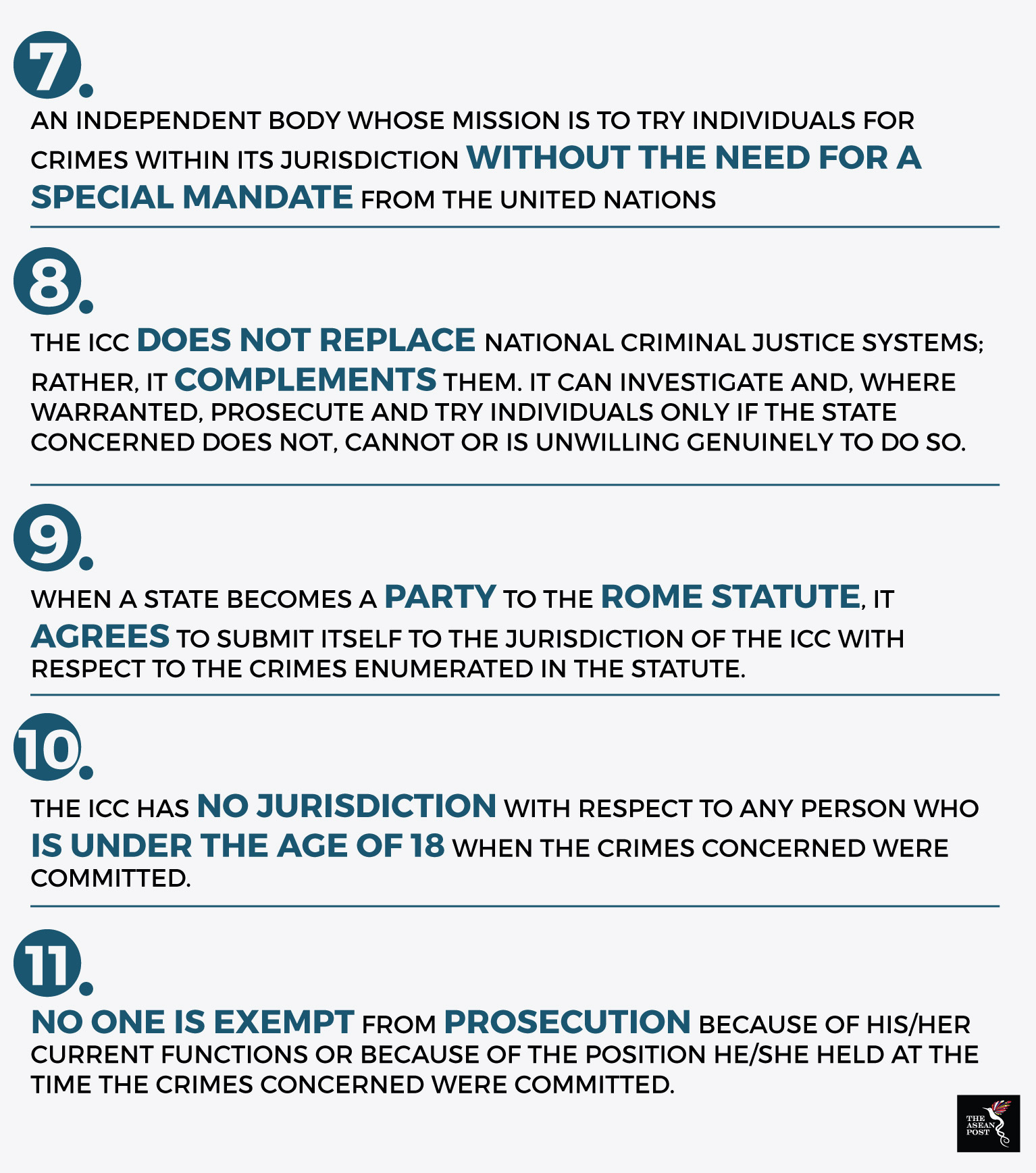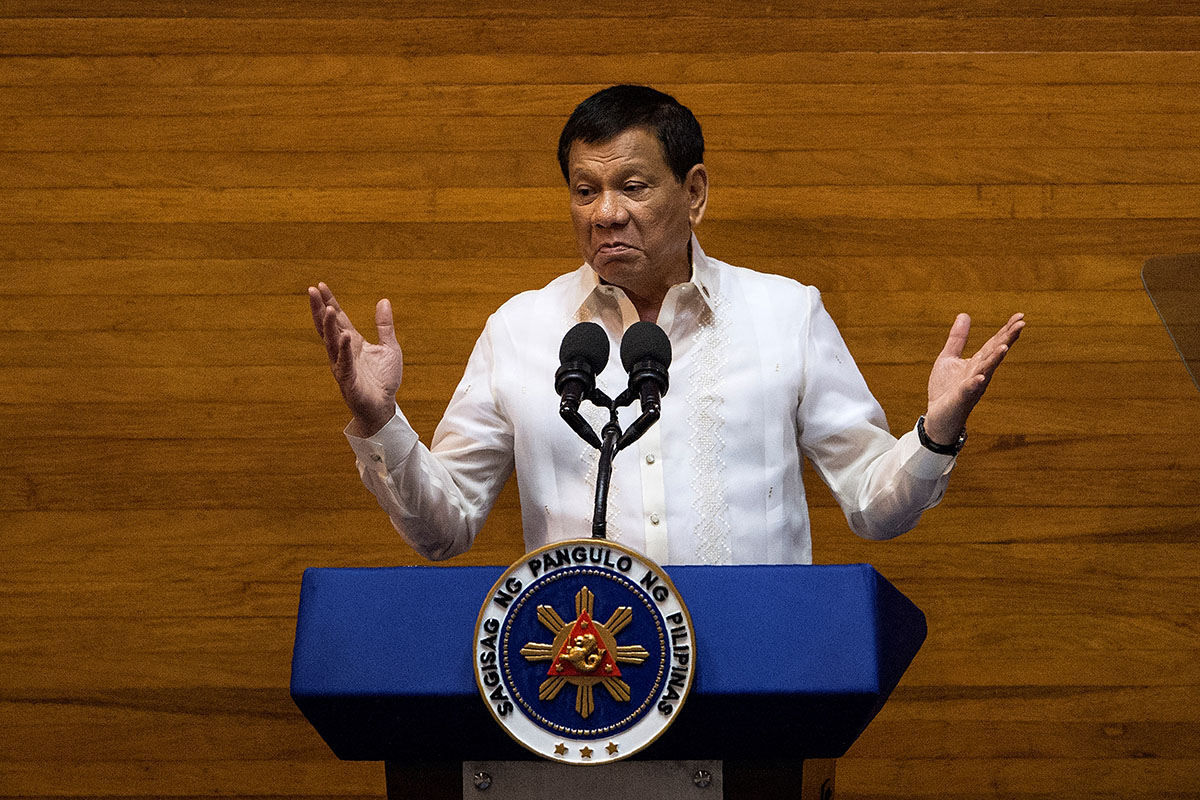Ever since the International Criminal Court (ICC) announced the preliminary examination of Rodrigo Duterte on 8 February 2018, the president of the Republic of the Philippines has been having a hard time clarifying his stand on the ICC’s actions.
The contradiction began when Harry Roque, the presidential spokesperson stated that president Duterte welcomed the ICC’s preliminary examination in February 2018 but soon after called for the withdrawal of the Philippines from the ICC on 18 March, 2018. Duterte may want an immediate pull out from the ICC but according to Farhan Haq, the United Nation’s deputy spokesman, the withdrawal can only take effect after one year in March 2019.
The main focus of the ICC is to analyse crimes allegedly committed in the context of the “war on drugs” campaign launched by Duterte on 1 July, 2016. According to the World Report 2018 by Human Rights Watch, this campaign has claimed an estimated 12,000 lives of primarily poor urban dwellers that also includes children. Consequently, the campaign by Duterte has attracted attention from human rights groups concerned with the alleged violations that may be occurring.
“While some of such killings have reportedly occurred in the context of clashes between or within gangs, it is alleged that many of the reported incidents involved extra-judicial killings in the course of police anti-drug operations,” stated the official website of the ICC.

Brief overview of the ICC
Aside from Duterte’s accusation that the ICC and the United Nations (UN) are on a crusade against him, he has also claimed that the treaty was never enforced by the Philippines as it was not published in the government journal as required by law.
Nevertheless, according to the States Parties to the Rome Statute of the ICC, the Philippines signed the Rome Statute on 28 December, 2000 and deposited its instrument of ratification on 30 August, 2011. Therefore, with the ratification by the Philippines Senate, the ICC now has the power to file an investigation on Duterte.
Duterte stated that the ICC is European Union (EU) sponsored and is convinced that other countries should also get out of the treaty. The idea of him looking at the ICC as an unjust body which is trying to condemn him can be seen as illogical if we take a brief look at the history of the ICC.
The ICC which is also known as The Court was established to investigate heinous crimes committed by individuals where the local government or judiciary is unable or unwilling to carry out an investigation and prosecute the perpetrators. In fact, in some cases, the judiciary could not do much to the individual because of interference from influential people in power.
The role of the ICC is to intervene and address cases related to genocide, crimes against humanity, war crimes and aggression. The ICC is not meant to replace national criminal justice systems but to complement them.
The United Nations General Assembly did recognise the need for a permanent international court to deal with various kinds of atrocities which had been perpetrated in 1948 when the Convention on The Prevention on Punishment of the Crime of Genocide was adopted. This was followed by the establishment of the ICC in Rome on 17 July, 1988 where a conference of 160 States established the first treaty-based international criminal court.

The relevancy of ICC in Southeast Asia
Out of over 120 countries that ratified the Rome Statute, only three countries, Cambodia, the Philippines and Timor-Leste were from Southeast Asia. Today, we only have one ASEAN member left under the treaty since Duterte announced the withdrawal of the Philippines.
At the Democracy in Southeast Asia: Achievements, Challenges, Prospects Conference which was held in Kuala Lumpur in September, 2017, Dr Haji Susilo Bambang Yudhoyono, former Indonesian President, warned that there is an attempt to swing the pendulum back towards authoritarianism based on the current state of democracy in Southeast Asia.
The advent of populism, illicit electoral financing and the politics of identity are the biggest threats contributing to the dilution of democracy in the region. If a local government is controlled by a certain political party, how fair and just can the judgement of the local authorities be?
As democracy in Southeast Asia continues to change, mature and evolve, the role of the ICC could be an important one if it is given more recognition; serving as the last bastion of justice for the downtrodden and disenfranchised.
